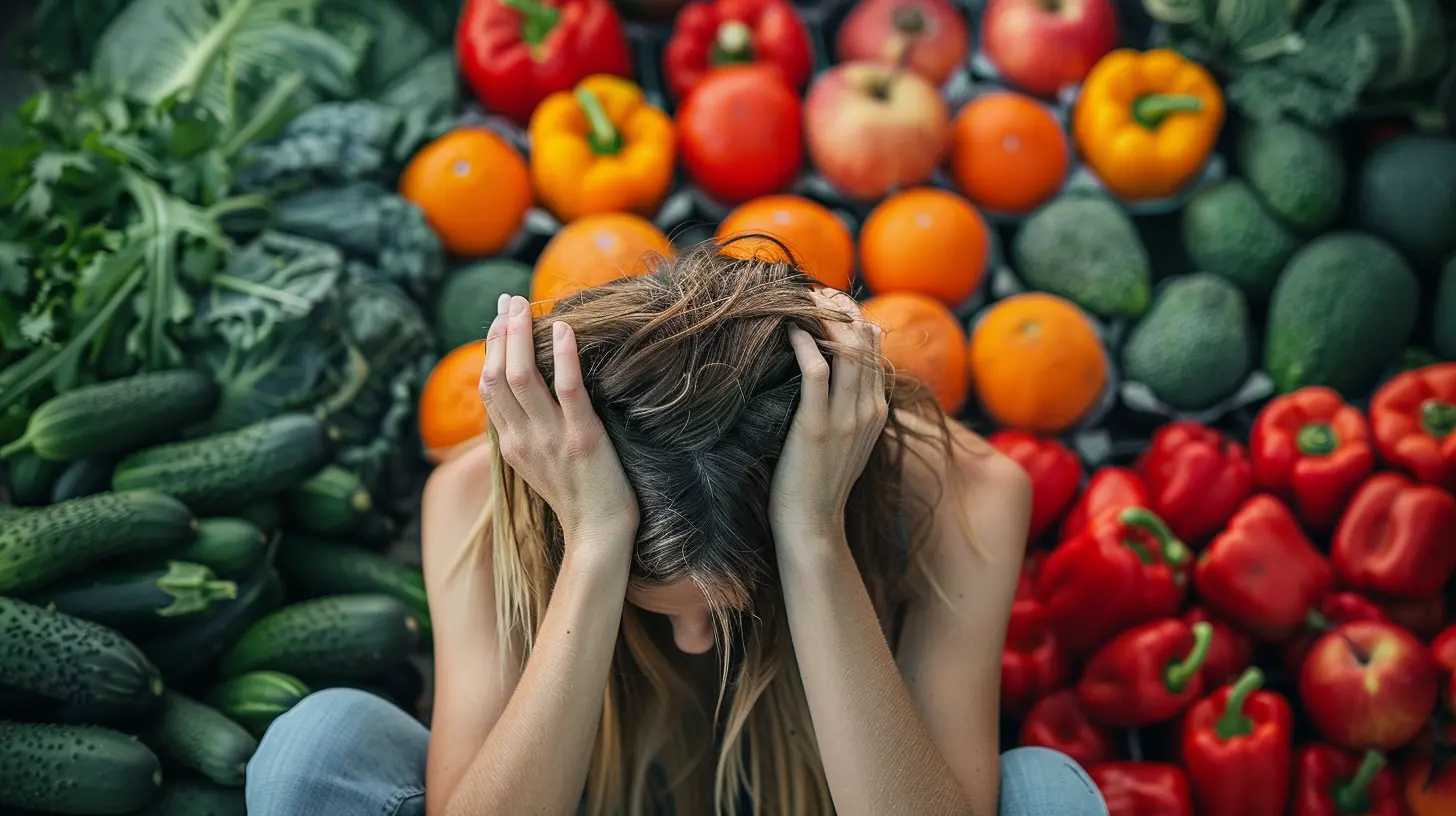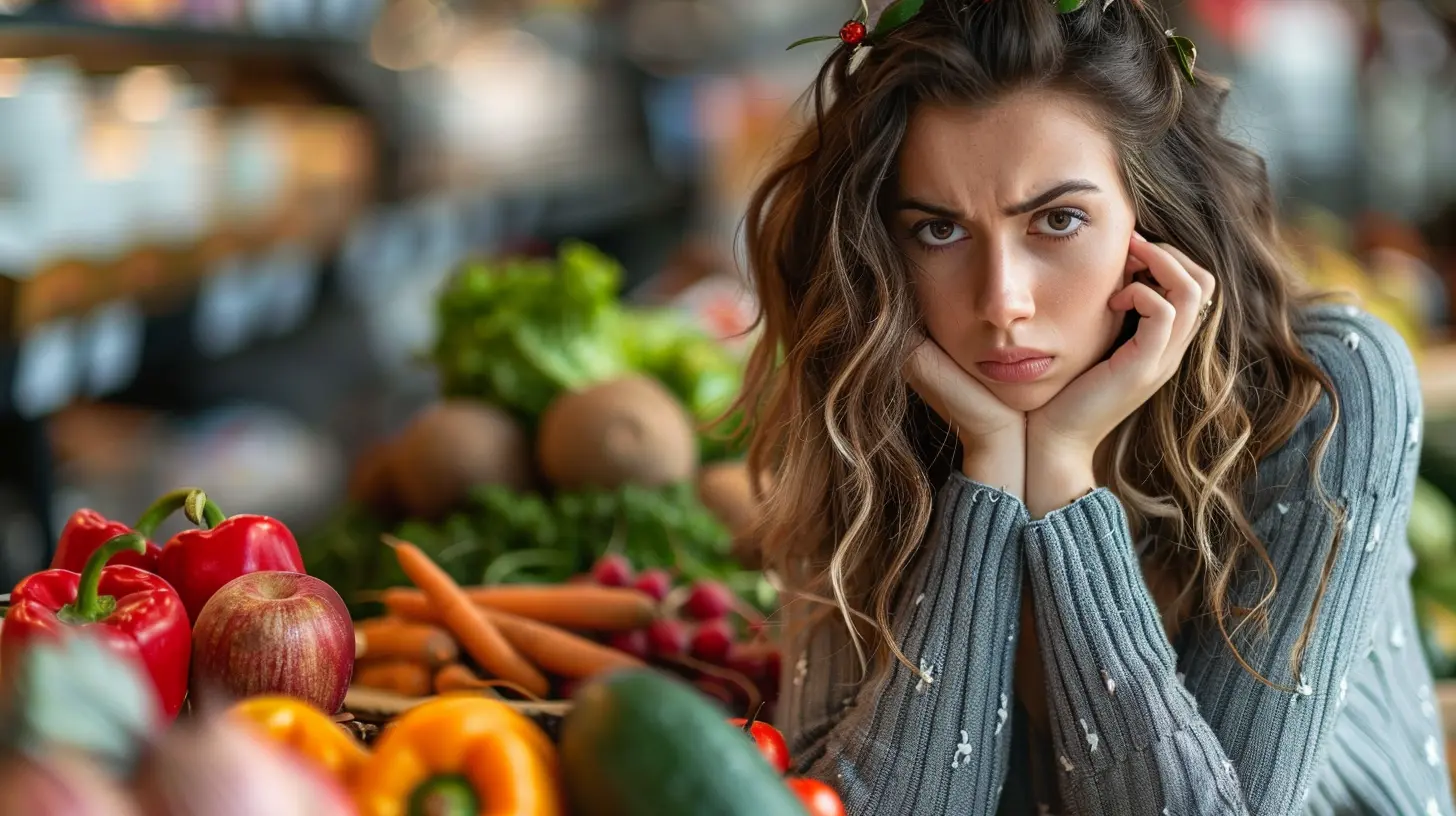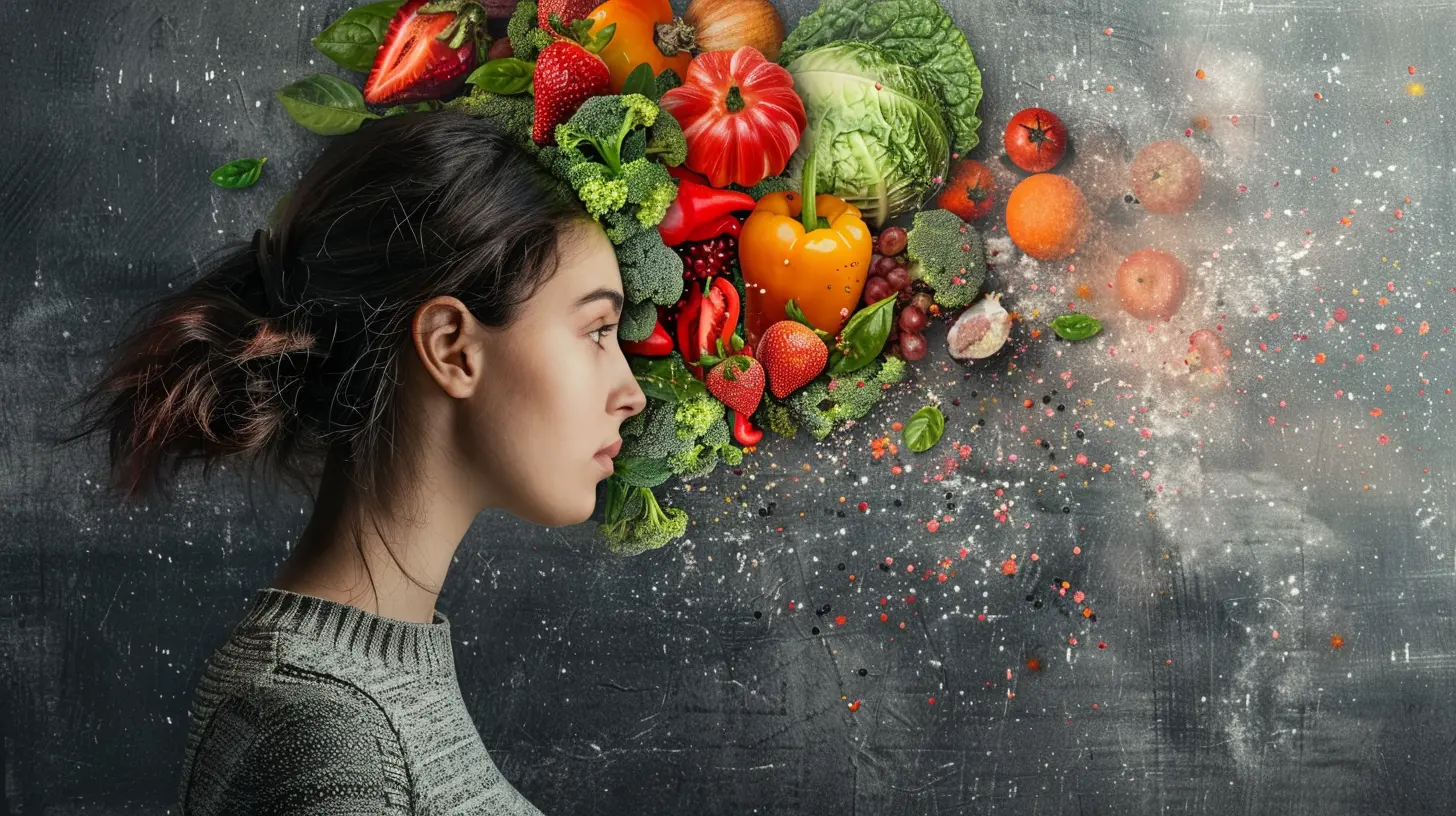The Role of Diet and Nutrition in Managing Depression
6 June 2025
Let’s face it—depression is more than just “feeling down.” It’s a heavy shadow that follows you around, zapping your energy, stealing your joy, and making even the simplest tasks feel like climbing a mountain. If you’ve ever felt stuck in that fog, you’re not alone. Millions struggle with depression, and while therapy and medication often take the spotlight, there’s a powerful player that doesn’t get nearly enough attention: your diet.
Yep, what you eat can actually influence how you feel. You might be wondering... how could something as simple as food possibly affect something as complex as depression? Well, buckle up, because we're diving into the fascinating connection between diet, nutrition, and mental health.

Why Your Diet Matters More Than You Think
Ever heard the phrase “you are what you eat”? It’s not just a cliché. Your brain is a high-performance machine, and like any machine, it needs the right fuel to function properly. Poor nutrition? That’s like putting cheap oil in a Ferrari—not gonna end well.Your brain isn’t just floating in space. It’s deeply connected to your gut, your hormones, your blood sugar levels, and the nutrients traveling through your body. We’ll break it all down in easy-to-grasp chunks, but here’s the big idea: what you put on your plate can either support your brain—or sabotage it.
The Gut-Brain Connection: Your Second Brain at Work
Here’s something wild: your gut has its own nervous system. It’s called the enteric nervous system, and it’s packed with millions of neurons that talk directly to your brain. Scientists even call the gut the “second brain.”Ever had a “gut feeling”? Or butterflies in your stomach? That’s your gut-brain link in action.
The bacteria in your gut—known as the microbiome—play a massive role in how you feel. A balanced, diverse microbiome helps produce neurotransmitters like serotonin and dopamine, which regulate mood. Around 90% of your serotonin is actually made in your gut, not your brain.
So, if your gut's out of whack from poor diet or imbalanced nutrition, it can trigger or worsen depression. Crazy, right?
Nutritional Deficiencies Linked to Depression
Let’s zoom in on a few nutrients that are crucial for your mental well-being. If you're running low on these, your brain might be waving a white flag.1. Omega-3 Fatty Acids
Think of omega-3s as brain boosters. Found in fatty fish like salmon, walnuts, and flaxseeds, omega-3s help maintain healthy brain cell membranes and reduce inflammation. Research links omega-3 deficiency with higher rates of depression.Not a fan of fish? No worries, you can find plant-based options or supplements to keep your levels up.
2. B Vitamins (Especially B6, B9, and B12)
These are like your brain’s maintenance workers—they help synthesize neurotransmitters and keep your nervous system humming. B-vitamin deficiencies (especially B12 and folate) can lead to fatigue, irritability, and—you guessed it—depression.Meat, eggs, leafy greens, and fortified cereals are good sources. Vegans and vegetarians should pay extra attention here since B12 usually comes from animal products.
3. Vitamin D
Nicknamed the “sunshine vitamin,” vitamin D plays a key role in mood regulation. Low levels have been consistently linked with depressive symptoms. Depending on where you live, you might not get enough sunlight year-round, so a supplement could be a smart move.4. Magnesium
Magnesium is the chill pill of minerals—it helps calm the nervous system. Low magnesium is connected to anxiety and depression. You’ll find it in foods like dark chocolate (yes, chocolate!), spinach, almonds, and avocados.5. Zinc
This lesser-known mineral is a powerful mood regulator. Zinc deficiency has shown up repeatedly in people with clinical depression. Try adding pumpkin seeds, cashews, or legumes to boost your zinc intake.
The Role of Blood Sugar: Mood Swings on a Plate
Ever felt cranky or foggy after skipping a meal or binging on sugar? That’s your blood sugar messing with your mood.Unstable blood sugar levels can lead to mood swings, irritability, fatigue, and—you guessed it—depressive symptoms. Highly processed foods, refined sugars, and white carbs cause your blood sugar to spike, then crash. And that crash can drag your mood down with it.
Instead, go for complex carbs like sweet potatoes, brown rice, and whole grains paired with protein to keep your energy and emotions on an even keel.
The Anti-Inflammatory Diet: Eat to Beat the Blues
Inflammation doesn’t just mess with your joints or your gut—it can also mess with your mind. Chronic inflammation has been linked to depression in several studies. Some researchers even believe depression may be, in part, an inflammatory disease.The fix? Anti-inflammatory foods. We're talking:
- Fatty fish
- Leafy greens
- Berries
- Turmeric
- Olive oil
- Nuts
These foods help calm inflammation and provide essential nutrients at the same time. Think of it as feeding your body and healing your brain in one bite.
Avoiding inflammatory foods is just as important. Cut back on:
- Processed meats
- Refined sugars
- Trans fats
- Soda
- Fast food
Comfort Food or Chemical Chaos?
Let’s be real: When you’re feeling low, it’s tempting to reach for comfort foods—ice cream, fries, cookies. They offer a quick dopamine hit, like a shot of happiness. But it’s a trap.These foods can create a vicious cycle: you feel bad, eat junk to feel better, crash, and feel even worse. Rinse and repeat.
Instead of chasing fake comfort in processed snacks, reframe food as self-care. Meal by meal, you can start shifting from emotional eating to intentional nourishment.
A Mediterranean Diet for a Happier Mind?
One of the most well-researched diets for mental health is the Mediterranean diet. It’s rich in:- Fruits and vegetables
- Whole grains
- Legumes
- Olive oil
- Nuts
- Lean protein, especially fish
Multiple studies show that people who follow a Mediterranean-style diet are less likely to experience depression. It’s nutrient-dense, anti-inflammatory, and supports gut health—all the things we’ve been talking about.
It’s not so much a “diet” in the strict sense; it’s more of a lifestyle. Flexible, flavorful, and full of brain-boosting goodness.
Can Changing Your Diet Really Help Depression?
So, here’s the big question: Can food alone cure depression? Probably not entirely. Depression is complex and often requires a multipronged approach—therapy, medication, lifestyle changes.But there’s no doubt that food plays a major role in how you feel day-to-day. And when combined with professional treatment, a nourishing diet can speed up healing, reduce symptoms, and keep your mental health on track.
Think of it this way: if your brain is a garden, therapy and meds are like the water and sunlight. But food? That’s the soil. Without good soil, nothing grows right.
Practical Tips to Start Eating for Your Mental Health
Okay, you’re convinced. You want to start eating better for your brain. But where do you even begin?Here are a few bite-sized tips to get you going:
1. Start Small
Don’t overhaul your entire menu overnight. Add in one brain-boosting food per day—like a handful of walnuts or an extra serving of greens.2. Meal Prep with Purpose
When you’re depressed, cooking can feel impossible. That’s why prepping meals ahead of time or freezing healthy options can be a lifesaver on the tough days.3. Hydrate
Even mild dehydration can mess with your mood. Aim for 6–8 glasses of water per day. Add lemon or cucumber slices for flavor if plain water’s not your jam.4. Cut the Sugar Slowly
Don’t go cold turkey—that’ll just make you cranky. But start reducing sugary foods and pay attention to how you feel.5. Keep a Food + Mood Journal
Track what you eat and how you feel. You might notice patterns—like feeling anxious after processed meals, or more energized after a protein-rich breakfast.Final Thoughts
Nutrition isn’t a magic cure for depression, but it’s an incredibly powerful tool that’s often overlooked. Think of it as one piece of the healing puzzle. When you nourish your body, you give your mind a fighting chance.So next time you’re feeling low, instead of reaching for that donut, consider what your brain really needs. A colorful plate might not solve everything—but it’s a damn good place to start.
And remember: small choices add up. One better meal. One more glass of water. One tiny step toward feeling like yourself again.
You got this.
all images in this post were generated using AI tools
Category:
Psychological DisordersAuthor:

Nina Reilly
Discussion
rate this article
2 comments
Yvonne Harmon
Great article! It’s eye-opening how diet directly impacts mental health. Simple changes in nutrition can make a real difference in managing depression. I appreciate the practical tips for incorporating healthier foods into daily routines!
June 15, 2025 at 2:20 AM

Nina Reilly
Thank you for your thoughtful comment! I'm glad you found the article helpful and informative. Nutritional changes can truly have a significant impact on mental health.
Hattie McTiernan
Empowering ourselves with the right nutrition can transform our mental health journey. Food isn’t just fuel; it's a vital ingredient in our emotional well-being. By consciously choosing nourishing foods, we can uplift our spirits and combat depression, paving the way for a brighter, healthier future. Let’s take charge!
June 6, 2025 at 3:59 AM

Nina Reilly
Absolutely! Nutrition plays a crucial role in mental health, and making mindful food choices can significantly enhance our emotional well-being. Let's embrace the power of healthy eating!


